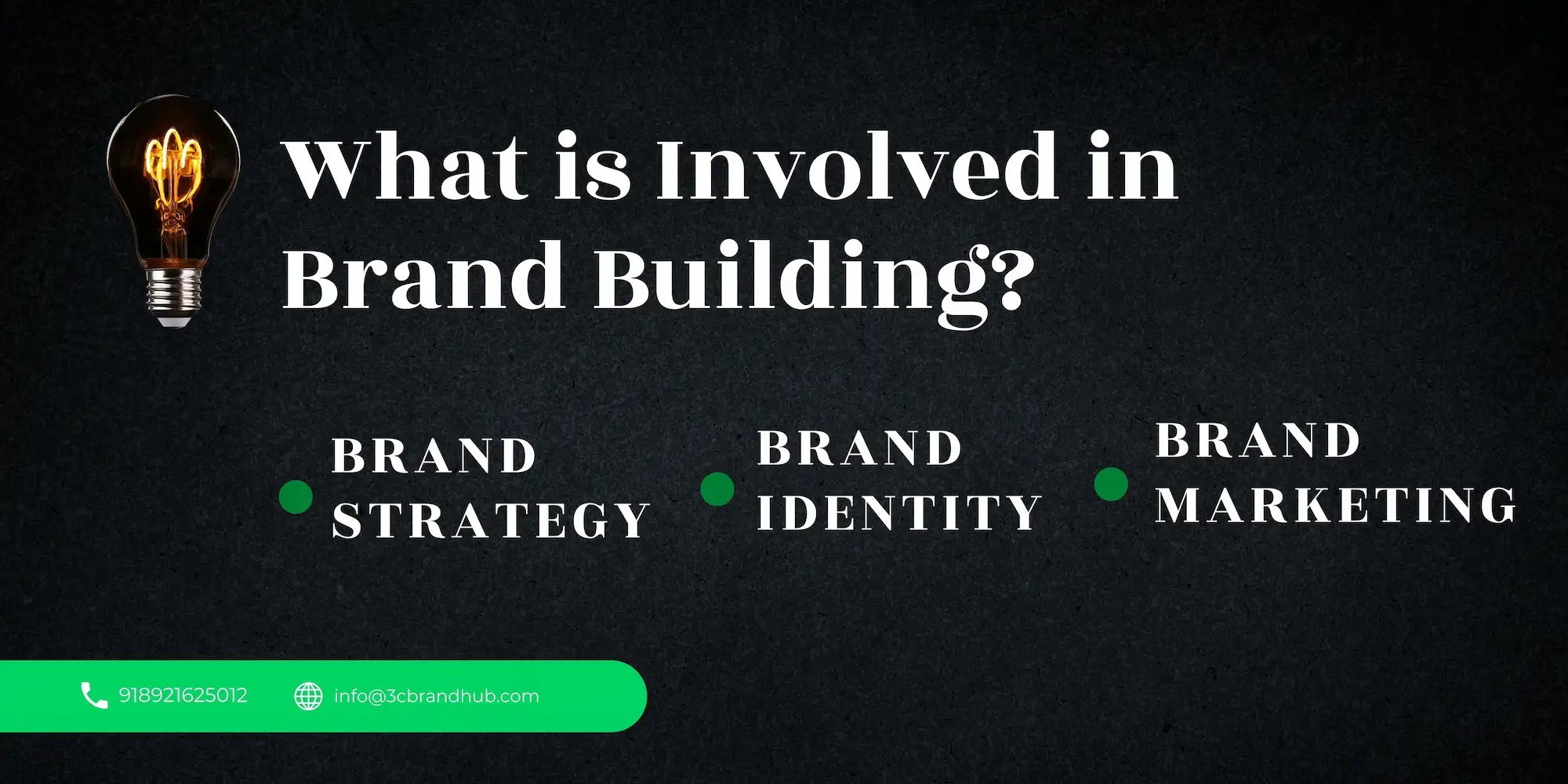There are hundreds of brands out there. It is quite interesting to discover how each of them has established themselves to be known and recognized by millions of people. In this blog, you will learn everything about what is branding and how to create a brand.
Let’s take a popular brand that everyone can identify. Coca-Cola, for instance, is known internationally. They didn’t become a popular brand all of a sudden. It took them years, first to regionally become popular and then cross international boundaries through its fame. Their success is the result of a combination of innovative ideas, brilliant branding strategies, the expertise of professionals and so on.
What is a Brand?
A brand is the identity that a business selling a product or service has among its customers. The brand enables it to stand out from competitors with similar offerings.
Let’s go back to the previous example of Coca-Cola. Multiple brands are selling carbonated drinks. When all of these are put together on a table and asked to identify the brand of each of them, even a small child recognizes Coca-Cola. It is because Coca-Cola has created a strong brand identity.
Can your brand also be made as impactful and recognisable as Coca-Cola? Why not? If you make use of branding effectively, it is possible. Let’s discover more about it in this blog.
What is Branding?
Branding is a deliberate process in which a business tries to demonstrate itself as a valuable one to its potential targets by creating a positive impression. They may use a combination of efforts for this goal such as attractive logos, strongly felt mission statements, designs etc.
To be more precise, branding is a conscious effort. Delivering quality services alone doesn’t make a business great among customers, especially when other companies are selling similar products or services. By demonstrating yourself as a more appealing choice than your competitors, you promise unique value to your customers and endear them to your brand.
Can a business survive without branding? How important it is to a business? Let’s delve into that next.
What is the Importance of Branding?
Brand plays multiple roles in making a business successful and thus is the most valuable asset. If you have created your business into a strong brand, your customers will yearn for your products or services. A successful brand name can make all stakeholders proud. Let’s explore the importance of branding in more detail here.

For a startup business, it takes months or sometimes even years to reach out to its customer base. But once you have built a strong brand, you can reduce the efforts put into marketing and advertising.
In a survey conducted among employees working for different corporates, more than 80% of them said their priority was to work for an established brand. When you have employees proud of your brand, it is easy to get their full cooperation.
Many of the popular brands have managed to make their brand name synonymous with the product they represent. Take, for instance, Colgate. No one has to be told or shown that Colgate is a toothpaste.
A good brand has the power to make its customers proud and confident. Ask someone wearing a pair of Nike or Adidas shoes about how they feel. 99% of them are likely to say they feel confident and great about wearing them.
Whether a business has a strong brand name is the first thing investors look for when they plan investments in businesses. More investments mean more opportunities for market expansions and scalability.
It is said that about half of the customers are volatile. They pick products or services based on the price. The remaining 50% choose products because of their brand. Branding is essential to create a loyal customer base.
Why Do You Need to Establish Your Business as A Brand?
Branding is more than just logos or designs. It is what people perceive your business as. By turning your business into a strong brand, you can enjoy a myriad of benefits such as:
Businesses that have managed to establish themselves as brands are more likely to have higher annual turnover and profit. They enjoy increased chances of success through expansion and growth.
Once your business has grown into a recognizable brand, people won’t care about the price while buying your product or services. This gives you the freedom to put premium pricing for your offerings.
In a competitive market, there is only one way to stand out – build a strong brand identity for your business. This not only gives you better business opportunities but also boosts your reputation.
It is estimated that less than half of the startup businesses make it in the long term. Many of them disappear after an initial phase of growth or survival. By capitalizing on branding, you can save your business from such a fate and instead mark success.
Many popular brands have customer communities where people discuss product features, reviews etc. These communities play a big role in creating a good reputation for the brand.
Word-of-mouth publicity is free publicity that businesses get from their loyal customers. Satisfied customers promote products or services among their friends and family. When this works in tandem with strong branding, the results can be amazing.
There can be fluctuations in the demand for a product or service due to various reasons. If you have the backup of a strong branding, the market fluctuations won’t hurt you much and you can quickly adapt to the changes.
What is Involved in Brand Building?
Brands are created in people’s minds. You cannot force people to like your business and help make it into a brand. A lot of strategic thinking, planning, creativity and imagination go into the process of brand building. Let’s explore the steps involved in brand building.

- Brand strategy
- Brand identity
- Brand Marketing
Do not worry if these terms scare you. I am going to explain each of these steps in detail below.
Brand Strategy
Brand Strategy aka brand development strategy is a carefully developed plan to help a business get identified by its target customers. It is by creating intelligent brand strategies that every successful business has managed to build its brand. From the very way you interact with your audience to presenting your product or service, it is the brand strategy that determines everything about your branding efforts.
Brand development strategy in itself is not a single process. It involves numerous steps such as:
- Establishing the purpose and mission of the brand
- Analysing the target audience
- Analysing competitors
- Developing brand personality
- Preparing brand voice and tone
- Developing the brand positioning Statement
- Defining brand values
- Developing brand storytelling strategy
- Creating brand messaging guidelines
- Strategy for brand expansion
- Setting up a structure for brand governance
- Strategy for brand experience
- Creating plans for brand monitoring and adaptation
Each of these steps plays a key role in developing a strong brand development strategy. In other words, your brand strategy will work only if all of these aspects are carefully planned and executed. Next, let’s explore the concept of brand identity.
Brand Identity
Brand identity is the essence of your brand’s messaging, communication style, values it incorporates and the emotional response you expect from customers through interactions with your brand or the business it represents.
Creating a brand identity is a process that requires time and expertise. There are various elements contributing to the creation of a brand identity. The nature of graphic designing you use and how you create user experience for your brand by incorporating style consistency, choice of fonts, shapes and forms etc. make a lot of sense in this regard. Let’s explore the various elements of brand identity.
- Stationery design
- Choice of topography
- Imagery style
- Tone guidelines
- Packaging design
- Brand style guide
- Logo Design
- Colour Palette
- Iconography
- Brand voice
- Brand messaging framework
Next, let’s try to understand the final step in branding, which is brand marketing.
Brand Marketing
Brand Marketing is the final step in branding where you integrate your brand awareness campaigns with marketing efforts. In other words, you try to elevate your brand by way of promoting your offerings – products or services. In doing so, you market your brand’s traits or attributes which your customers easily identify with your business.
Only by making use of the right brand marketing strategy can you reach out to the right audience who will later become your loyal customers. Hence, rather than focusing on getting visibility, focus on finding the right audience. It is where the brand marketing strategies give you the edge. Let’s find out what those strategies are.
- Market Research Strategy
- Advertising Campaigns Strategy
- Social Media Marketing Strategy
- Email Marketing Strategy
- Events and Sponsorships Strategy
- Customer Relationship Management (CRM) Strategy
- Marketing Communication Strategy
- Content Marketing Strategy
- Influencer Marketing Strategy
- Public Relations Strategy
- Search Engine Marketing (SEM) Strategy
- Search Engine Optimization (SEO) Strategy
I’m confident you’ve got a perfect idea about the branding process and what its components are. Now, let’s delve into the practical side of it. We are now going to see how to create a brand step by step.
How to Make a Brand? Stepwise Process
Creating a brand is the process of establishing a unique identity for your business and making that resonate with the people who buy your offerings – your customers. It involves multiple steps, which are:
Establish purpose and values
The first step in making a brand is identifying and establishing the core values and purposes of your brand. Remember that making a profit shouldn’t be considered as the fundamental purpose. It should be something that makes your customers like your brand and encourages them to put their trust in it.
Get to know your audience
Know your customers. It is important because their choice is your success. Conduct a thorough market study about your customers’ background, demography, psychology, behaviour and more. Remember that people love brands that understand their pain points and deliver personalized services.
Create a strong brand identity
Create a strong brand identity by incorporating an eye-catching logo, imagery, typography, colour palette etc. Remember that consistency is the key to creating brand identity. Whatever elements you bring into the process of brand identity-making, ensure that there is consistency across all elements.
Conceive your brand story
Stories are the best way to convey a message. By crafting a compelling brand narrative, you can easily get into the emotional space of your audience. Use your brand narrative to convey your brand’s mission, vision and history. Try to come up with a unique story that easily differentiates you from the competitors.
Set your brand voice and messaging
Your brand must have a unique style and tone. Similarly, the language you use for communicating with your audience must be one that they can emotionally connect with. Create a solid set of guidelines as to how to utilize brand messaging and voice while interacting with the audience.
Foster positive brand experience
Make sure that your customers get to think about your brand and its unique propositions positively at every touch point. For that, you must be able to provide them with a very good customer experience. Improve the quality of your services and take every possible step to ensure that every expectation of your customers is duly met.
Market your brand vigorously
Utilize every possible means to market your brand as vigorously as possible. Today there are numerous channels and venues to promote your brand such as social media, conventional advertising, content marketing etc. Make use of such options in favour of your brand’s promotion. Likewise, have a comprehensive marketing strategy at hand to use for brand awareness efforts.
Review and adjust your brand strategy
Once you've created a brand, that's not the end of the game. Brand building is an ongoing process that requires regular review and adjustments. So, revisit and check your brand’s performance from time to time. Use metrics such as customer satisfaction and market growth to see if all your brand promotion efforts are yielding the expected results. Be open to adjusting your strategies if you notice any flaws.
Following these steps carefully, you can create a strong brand for your business. One that is lasting and can resonate with your audience’s interests.
Conclusion
To conclude, brand building is essential for any business aiming to scale up and survive in the long run. It’s integral to a successful business strategy. Given the dynamic nature of the market and the high level of competition, no business can thrive without establishing itself as a winning brand.
We are certain that the guidelines, strategies, and step-by-step instructions on how to start a brand discussed in this blog will help you take the first crucial step in branding. Best of luck with your branding efforts!






